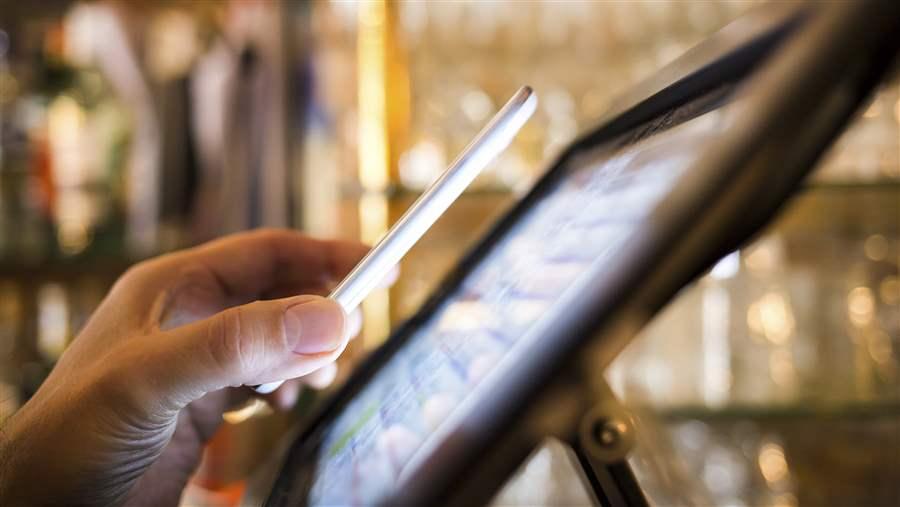Is This the Future of Banking?
Focus group views on mobile payments
 iStock
iStockMobile payments and the barriers that may prevent consumers from adopting or safely using the technology.
Use of mobile payments in the United States is projected to grow at a 22 percent compound annual rate through 2019 and could offer a more convenient and less expensive way for Americans to manage their money, especially the more than 9 million U.S. households that are unbanked—that is, do not have bank accounts. To better understand whether mobile payments could meet the needs of this population and to learn consumers’ views on the possible benefits and risks of mobile payments, The Pew Charitable Trusts in May 2015 convened focus groups with people who use mobile payments and with unbanked customers who own smartphones.
This brief highlights the findings about the potential of mobile payments and the barriers that may prevent consumers from adopting or safely using the technology.
The research found that:
- Younger smartphone owners with bank accounts used mobile banking more regularly than similar consumers over age 66.
- More: Those who had adopted mobile banking were using it to pay bills and transfer funds; some were also using it to deposit checks.
- Mobile payments were used most frequently for online shopping and funds transfers.
- More: Users cited convenience and speed as reasons for adopting the technology.
- All groups had relatively high awareness of major mobile payments brands, which allow consumers to make mobile purchases at a variety of online and brick-and-mortar retailers—through services such as PayPal, Apple Pay, and Google Wallet—and to buy coffee at Starbucks, currently the most popular mobile payments app.
- Nonusers found potential incentives—cash back, reward points, discounts and coupons, and free items—enticing and suggested that they might use mobile payments if these were offered.
- Participants cited several barriers to using mobile payments, including a lack of perceived personal benefit as well as discomfort with some industry practices, particularly regarding security.


Pew: Consumers See Mobile Payments as Helpful but Potentially Troublesome
Focus group participants say technology is risky but rewarding


Mobile Remote Deposit Capture
The disclosure practices of banks and prepaid card companies






